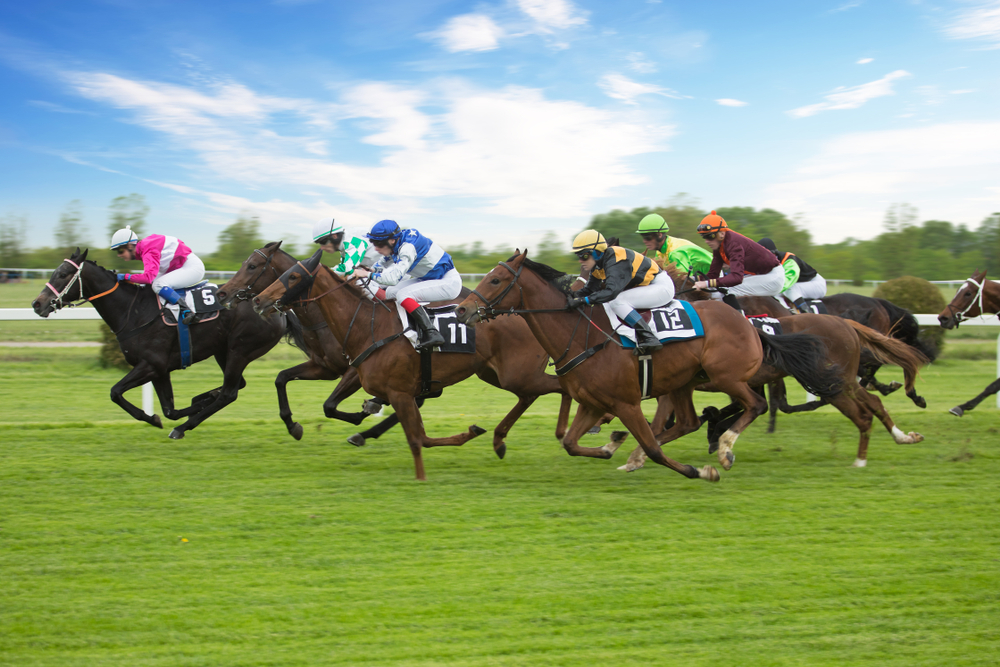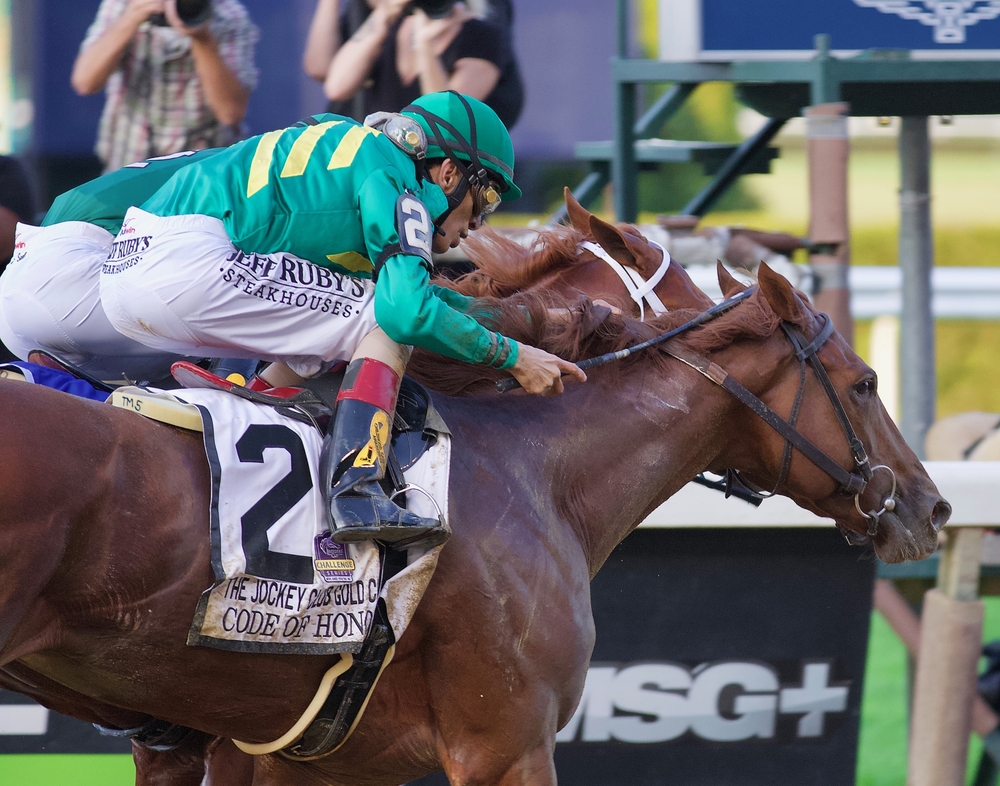The UEFA Euro 2024 is poised to deliver yet another thrilling chapter in football history as 24 teams from across Europe compete for the continent’s most prestigious national team trophy. Scheduled to run from 14 June to 14 July, the tournament is hosted by Germany, a nation with a rich footballing heritage and infrastructure ready to host large-scale international events. With the draw having been conducted, the group stages present a picture of the battles ahead on the pitch as teams vie for a spot in the sought-after knockout rounds.
The group stage format mirrors that of the previous tournament, ensuring a consistent and familiar progression for teams and fans alike. Within the six groups, each team will play the others in their group once, with the top two from each group automatically advancing. Additionally, the four best third-placed teams will secure a spot in the knockout stages, adding a layer of strategy for teams as they navigate the group fixtures.
Key Takeaways
- Euro 2024 takes place in Germany with 24 teams competing in six groups.
- The top two teams from each group, along with four third-placed teams, will enter the knockouts.
- Fans will have the opportunity to experience matches across ten host cities.
Overview of UEFA Euro 2024
The UEFA Euro 2024 is set to be a significant event in football, hosted by Germany over the course of a summer month, showcasing the continent’s premier football talent and uniting Europe in a celebration of the sport.
Significance of the Tournament
UEFA Euro 2024 represents a pinnacle of European football, held every four years and bringing together the best national teams from across the continent. The tournament is not only a stage for showcasing football excellence but also acts as a unifying event that captures the attention of fans worldwide. It is a testament to the sport’s ability to transcend boundaries and foster camaraderie among nations.
Historical Context
Football has long been intertwined with European culture, and the Euro tournament, formally established by UEFA in 1960, has evolved into one of the most prestigious football competitions. Germany, with a strong legacy in football, has previously hosted the Euros in 1988 and the World Cup in 1974 and 2006. As hosts in 2024, they look to add to their rich football history by providing state-of-the-art venues and a high level of organisation. Euro 2024 is anticipated to be a celebration of both tradition and modernity in the sport of football.
Host Nation
UEFA Euro 2024 is set to unfold across Germany, realised through strategic venues and propelled by the nation’s proven aptitude for hosting large-scale sporting events.
Germany’s Role as Host
Germany is reprising its role as a pre-eminent host nation following the 2006 FIFA World Cup, ready to once more put on a spectacle in the summer of 2024. With an A1 seeding, it will kick off the tournament positioned as the head of Group A.
Selected Host Cities
Ten German cities have been chosen to host UEFA Euro 2024 matches:
- Berlin
- Munich
- Dortmund
- Hamburg
- Cologne
- Frankfurt
- Gelsenkirchen
- Leipzig
- Stuttgart
These cities are strategically dispersed across the country, providing ease of travel and a diverse taste of German culture for visiting fans.
Stadiums and Venues
Some of the most iconic stadiums in Germany are set to be at the forefront of the footballing action:
- Berlin’s Olympiastadion
- Munich’s Allianz Arena
- Dortmund’s Signal Iduna Park
- Gelsenkirchen’s Arena AufSchalke
These venues are part of Germany’s robust infrastructure, chosen for their modern facilities, capacity, and historical significance in football.
Teams and Groups
The UEFA Euro 2024 tournament features 24 teams who have been distributed into six groups, labelled Group A to Group F. A key element to remember is that the top two teams from each group will advance to the knockout stage, ensuring a fiercely competitive group stage.
Group A
- England
- Croatia
- Albania
- Scotland
Group A sees a strong English side viewed as one of the favourites. They are joined by their neighbours Scotland, the technically astute Croatia, and an Albanian team known for their resilience.
Group B
- Spain
- Switzerland
- Czech Republic
- Slovakia
In Group B, Spain brings a blend of experience and youthful talent, aiming to replicate past glories. They face the Czech Republic, Switzerland, and a Slovakian team that can surprise on their day.
Group C
- France
- Denmark
- Romania
- Hungary
Group C features the formidable French squad, with a blend of world-class talent in all positions. Denmark poses a significant threat with their cohesive unit, while Romania and Hungary will look to cause upsets against their more fancied opponents.
Group D
- Italy
- Belgium
- Poland
- Austria
Italy, traditionally one of Europe’s powerhouses, leads Group D and is flanked by Belgium, who boast several top-tier players. Poland will rely on their attacking prowess, whereas Austria will aim to replicate recent successes on the European stage.
Group E
- Netherlands
- Portugal
- Ukraine
- Slovenia
The Dutch team, in Group E, holds a strong position, with a squad rich in talent. They are up against Portugal, who always prove to be strong contenders. Ukraine and Slovenia complete the group, with both capable of punching above their weight.
Group F
- Germany
- Serbia
- Sweden
- Norway
The host nation, Germany, sits in Group F as one of the tournament’s heavyweights. Serbia’s robust playing style will challenge their opponents, while Sweden and Norway round out the group as teams that are no strangers to the European footballing stage.
Tournament Structure
The UEFA Euro 2024 structure is a meticulously planned format, featuring a Group Stage followed by a Knockout Phase, ensuring a competitive journey towards the coveted European championship title.
Group Stage
In the Group Stage of UEFA Euro 2024, twenty-four teams are divided into six groups of four. Each team faces their group counterparts once, with the standard three points for a win, one for a draw, and none for a loss. The top two teams from each group automatically advance to the Knockout Phase, alongside the four best third-placed teams.
- Advancing Criteria:
- Top two from each group.
- Four best third-placed teams.
Knockout Phase
The Knockout Phase sees sixteen teams compete in single-elimination fixtures, with matches spanning from the Round of 16 to the Quarter-finals, then progressing to the Semi-finals, and culminating in the Finals. Each knockout game is resolved on the day, with extra time and penalties deciding the winner if necessary.
- Round of 16: The group winners, runners-up, and the best third-placed teams play in this round.
- Quarter-finals: Eight winners from the previous round vie for a semi-final berth.
- Semi-finals: Four teams compete to book their place in the final showdown.
- Final: The remaining two teams face off to determine the champion of UEFA Euro 2024.
Note: Should a Knockout Phase match end in a draw, extra time and, if required, penalty shootouts are utilised to decide the winner.
Qualification Process
The UEFA Euro 2024 qualification process determines which national teams secure their spot in the final tournament. This multi-faceted system ensures a fair chance for teams to qualify based on their performance across several rounds of competition.
Qualifying Rounds
The primary stage for determining participants of the UEFA Euro 2024 is Qualifying Rounds. Teams are divided into groups where they play each other home and away. The top teams from each group automatically earn a place in the finals. A typical qualifying campaign involves teams playing matches on designated international breaks over the course of a year.
Play-Offs
The Play-Offs are a second chance for teams that did not qualify directly from the group stages. This phase usually involves a small number of matches where the winners secure the remaining slots for the tournament. Play-off positions are generally awarded to group runners-up, and in some cases, to third-placed teams.
Nations League Impact
The UEFA Nations League impacts the qualification process as well. It provides an alternative route to the tournament for teams that perform well in this competition but may not have secured a spot through conventional qualifying groups. The best performers in the Nations League that have not already qualified for the Euros can enter the play-offs, with success in this league potentially leading to a backdoor entry into the UEFA Euro 2024.
Match Schedule and Dates
The UEFA Euro 2024 tournament is structured with clearly defined match dates and stages to offer fans a streamlined viewing experience. The competition begins with a group stage draw, progressing to finals through predetermined match days.
Group Stage Match Days
- Friday, 14 June – Thursday, 26 June: The group stage matches take place, with countries battling for points in their respective groups. All kick-off times are Central European Summer Time (CEST).
Final Rounds Schedule
- Round of 16: From Friday, 29 June to Monday, 2 July, teams that have advanced from the group stages will compete in knockout matches.
- Quarterfinals: Scheduled for Wednesday, 5 July and Thursday, 6 July, the quarterfinals will determine the four teams advancing to the next round.
- Semifinals: These crucial matches are slated for Tuesday, 9 July and Wednesday, 10 July.
- Final: The tournament concludes with the final match on Sunday, 14 July, held in Berlin, where the champions of UEFA Euro 2024 will be crowned.
Fan Experience
The UEFA Euro 2024 is set to offer a dynamic fan experience with accessible tickets and comprehensive public viewing areas. Fans can look forward to a well-organised system for attending matches and enjoying the tournament atmosphere across host cities.
Tickets and Attendance
Securing tickets to the UEFA Euro 2024 matches is an eagerly anticipated process for fans. They should be aware of the following points:
- Sale Phases: Tickets are typically released in phases, starting with a ‘fans-first’ sale, followed by general public sales.
- Official Platforms: Tickets should only be purchased through UEFA’s official ticketing platform to ensure authenticity and fair pricing.
- Accessibility: UEFA is expected to offer a range of ticket options, including concession tickets for certain groups such as children and seniors.
Fan Zones and Public Viewing
For those without tickets or looking to enjoy the camaraderie of fellow supporters, fan zones and public viewing areas will be available:
- Location: Major public spaces in the host cities transform into fan zones, offering large screens to watch live matches.
- Entertainment: Besides the live broadcasts, fan zones often feature food and beverage stalls, entertainment acts, and football-themed activities.
- Security: High standards of security are implemented to ensure a safe and enjoyable environment for every attendee.
Media Coverage
UEFA Euro 2024’s media coverage is expected to capture the excitement of football fans across the globe. With a range of broadcasters securing the rights to televise the games, audiences will have multiple platforms at their disposal to enjoy the tournament.
Television Broadcasting
ITV and BBC are the main broadcasters providing televised coverage of the tournament to UK audiences. ITV has scheduled key group stage matches, including the opening fixture:
- 14 June: Germany v Scotland at 20:00 BST on ITV.
The BBC will also share coverage, though specific matches aired by the BBC are not detailed in the provided results.
Online Streaming
In addition to traditional television broadcasting, online streaming platforms will offer live coverage of the matches. Fans will be able to stream the games through ITV and BBC’s digital platforms, which likely include:
- ITV Hub
- BBC iPlayer
Streaming services offer an advantage for viewers who prefer watching on mobile devices or require catch-up services to watch the games at their convenience.
Predictions and Analyses
In the lead-up to UEFA Euro 2024, analyses on pre-tournament favourites and team performances shed light on potential outcomes. The group stage dynamics and the unpredictability of the knockouts play pivotal roles in shaping these early predictions.
Pre-Tournament Favourites
Some teams are consistently at the top in the discussion of potential winners. Germany, as hosts, have the advantage of playing on home soil, which historically improves team performance. France and Belgium also come into the tournament with talented squads, high expectations, and a track record of strong performances in recent international tournaments.
| Team | Reason for Favouritism |
|---|---|
| Germany | Home advantage, historical success |
| France | Previous tournament winners, strong player selection |
| Belgium | Highly ranked in FIFA world rankings, star players |
Team Performance Reviews
Analysing the group stage throws light on how teams might manoeuvre through to the knockouts. Denmark, seeking retribution against England after a controversial defeat at Euro 2020, may hinge their progress on crucial matches. Portugal, with a skilled contingent led by Cristiano Ronaldo, might repeat their past resilience shown in their 2016 victory. Italy, not to be discounted, will look to repeat their success after triumphing in Euro 2020.
- England: They have a mix of youth and experience and should not be underestimated, despite past disappointments.
- Denmark: Solid teamwork and strategy make them a non-traditional threat.
- Portugal: Known for their tournament prowess and capable of going far despite occasional inconsistency in the group stages.
- Italy: With their Euro 2020 victory behind them, they’ll be keen to prove it wasn’t a one-off success.
Cultural Impact
The UEFA Euro 2024 emerges as a vibrant stage where the cultural significance of football is celebrated, forging unity and reflecting national pride through the beloved sport.
Unity Through Football
Football possesses the unique capacity to unite diverse groups under the banner of shared passion. Events such as UEFA Euro 2024 transcend mere competition; they foster a sense of community among spectators and nations alike. The tournament tends to create fan zones and public spaces within host cities that act as melting pots for fans from all corners of Europe, including the Tartan Army from Scotland and the Three Lions supporters from England. It is within these culturally enriched hubs that stories and histories are exchanged, and differences are set aside in the name of the beautiful game.
National Teams and Identity
Each national team carries with it not just the hopes for glory but also a profound sense of identity that resonates with its supporters. Teams like Portugal, England, France, Spain, Czechia, and Wales are embodiments of their respective nations’ cultures, and their participation in Euro 2024 provides an avenue for expressing this identity. When these teams grace the pitch, they do so draped in their nation’s colours, symbols, and heritage, providing their fans an opportunity to celebrate the uniqueness of their home countries while rallying behind a common cause. The football field becomes an extended expression of nationality, where each match is a narrative that captures hearts and reflects the collective identity of a nation.
Security and Fair Play
At UEFA Euro 2024, the organisers uphold the highest standards of security and fair play throughout the tournament. They are committed to safeguarding both participants and fans, ensuring everyone can enjoy the event in a safe environment.
Security Measures:
- Match Venues: Strict security protocols are in place at all match venues, with trained personnel and advanced surveillance technology.
- Crowd Management: Efficient crowd control strategies minimise the risk of congestion and conflict, with clearly marked emergency exits and information points.
- Monitoring: Constant monitoring allows for rapid response to any incidents, maintaining a secure atmosphere for all.
Fair Play Initiatives:
- Player Conduct: UEFA enforces regulations to promote sportsmanship among players, with sanctions for those who breach guidelines.
- Match Officiating: The selection of experienced referees ensures unbiased officiating, supported by technologies like VAR to aid in critical decisions.
- Anti-Discrimination: A zero-tolerance approach combats racism and discrimination, both on the field and in the stands.
The tournament is dedicated to a fair competition where skill and teamwork are spotlighted. The integrated approach to security and fair play illustrates the organisers’ commitment to these principles.
Frequently Asked Questions
How can one purchase tickets for the Euro 2024 matches?
Tickets for Euro 2024 will be available for purchase through the official UEFA website. Interested individuals should regularly check the site for updates on ticket release dates and sales phases.
In which cities and stadiums will the Euro 2024 matches be played?
Euro 2024 matches will be played in various cities across Germany. Specific stadiums include the Munich Football Arena, known internationally as Allianz Arena, and Berlin’s Olympiastadion, among others.
What is the qualification process for countries participating in the Euro 2024 groups?
Countries must qualify for Euro 2024 through a series of competitive matches. The qualification process ensures that the best-performing national teams advance to the final tournament.
When is the final of the Euro 2024 tournament scheduled to take place?
The final of the Euro 2024 tournament is scheduled for 14 July 2024 at the Olympiastadion in Berlin. This match will conclude a month-long competition among Europe’s top national football teams.
Who are the teams in Group A for UEFA Euro 2024?
Group A consists of Germany, Scotland, Hungary, and Switzerland. The opening match will see hosts Germany play against Scotland at the Munich Football Arena.
What is the tournament format for UEFA Euro 2024?
The UEFA Euro 2024 will follow a format similar to previous tournaments, featuring six groups of four teams each. The top two teams from each group, along with the four best third-placed teams, will advance to the knockout phase. This phase includes rounds of 16, quarter-finals, semi-finals, and the final.
When and where is the UEFA Euro 2024 final?
The final match of UEFA Euro 2024 is scheduled for Sunday, 14 July 2024, at Berlin’s Olympiastadion.
Which cities are hosting UEFA Euro 2024 matches?
Ten venues across Germany have been chosen to host matches. These include notable stadiums like the Olympiastadion Berlin, Munich Football Arena, and Dortmund’s BVB Stadion among others, covering the major regions of Germany.
Who won the last UEFA European Championship?
Italy is the defending champion, having won the tournament in 2020 by defeating England in the final.
How can fans watch UEFA Euro 2024 matches?
A variety of broadcasters will provide coverage of the UEFA Euro 2024 matches across different countries. For example, in Germany, RTL, Deutsche Telekom, and ZDF will broadcast the games. The full list of international broadcasters offering live streams and television coverage can be found on official sports and football websites.





